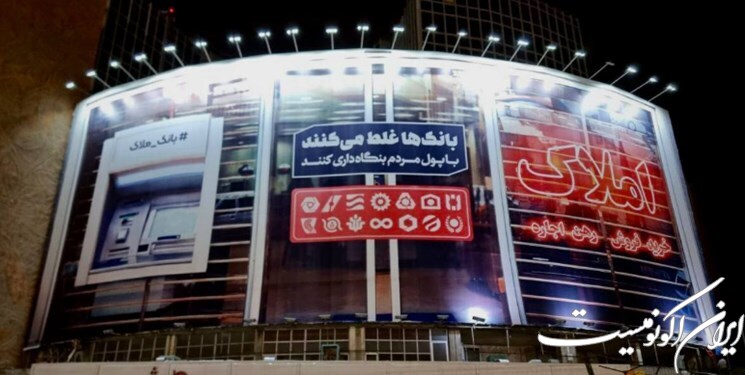Unconventional entrepreneurship of banks is grounding the domestic producer

In an interview with Iran Economist, Hojjat Binabadi stated: According to the available statistics, the banking network is considered the most important financial institution in Iran due to the financing of more than 90% of the economic system, and as a result, any disruption in its functions directly has a significant negative impact on the national economy.
He added: The unconventional banking of banks is one of the serious threats to the country’s economic system and investment prospects. According to articles 16 and 17 of the “Law on removing barriers to competitive production and improving the country’s financial system” approved in 2014, all banks and credit institutions are required to at least 33% of their assets annually. hand over the movable, immovable and goodwill acquired by them and their subsidiaries and deemed by the Central Bank to be surplus, and also according to the rules of the Central Bank, the permitted amount of corporate ownership and the limit of banks’ investment in the shares of companies (existing companies and New) maximum forty percent of the base capital of each bank is determined.
A banking and financial expert stated: Unfortunately, most banks have deviated from these legal cases, and in such a situation, due to the weak supervision of the central bank, unconventional banking becomes the main strategy for their survival. Of course, we should not ignore the impact of the negative real interest rate as well as some cumbersome political and governmental laws and tasks that lead to the loss of conventional banking operations in the banks’ desire to generate income and economic activity in other markets.
Bin Abadi stated: Today, in all the populous cities of the country, a significant number of luxury and expensive properties and arcades belonging to banks can be observed, most of these, which were created with the money of depositors, unfortunately lead to the stagnation of the bank’s assets and hence liquidity risk. (Liquidity risk) brings a dangerous risk, and to avoid the phenomenon of bank rush and its consequences, banks are forced to finance through the interbank market and overdraft from the central bank, which ultimately leads to creating liquidity and increasing inflation.
He said: In addition to the aforementioned damage, the entry of a heavy amount of liquidity into the real estate market of one area of Tehran and other cities causes the price balance to be disrupted and as a result leads to a false growth in the prices of properties in that area and more pressure on residential and commercial tenant groups. will be
The banking and financial expert continued: Another important negative effect that can be mentioned in relation to unconventional banking in the banking system is the decrease in the growth of the gross domestic product (GDP), in such a way that the subsidiaries of the banks, due to a significant amount of cheap facilities, quick financing and They become powerful and on the other hand, the real and productive economic sectors continue to operate if they successfully go through long and depreciating processes through expensive facilities.
Binabadi added: In such an unfair situation and taking into account the principle of competitiveness, independent and private economic enterprises will eventually disappear, and their market share will be taken over by the enterprises under the collection of banks and other institutions, and this harmful process will create monopolies in different markets and not allowing them to operate. It belongs to small investors and producers, meanwhile, these bank subsidiary companies generally have low productivity due to the lack of transparency in the appointments of their board of directors and also the non-operation of corporate governance rules, which continue to survive artificially by their owning bank. The result of all these cases leads to a decrease in economic growth and GDP.
He said: Considering that in the country’s banking industry, we are witnessing an unregulated movement towards the creation of financial groups and economic holdings with diverse and homogeneous business strategies, and considering that the unconventional banking of banks is a serious threat to national security and economic stability, it is necessary for macroeconomic policy makers and Mali have a serious will to make tough decisions to solve this problem of economic governance of the country.
end of message/

